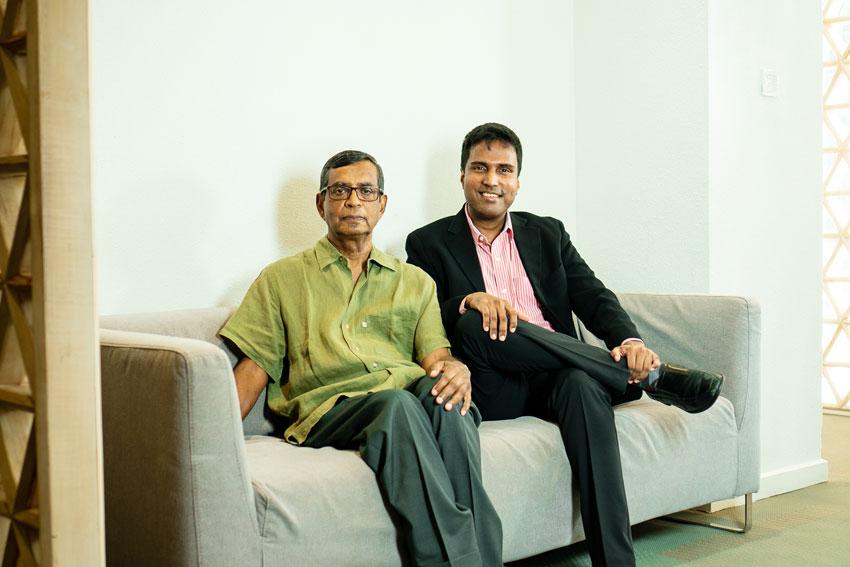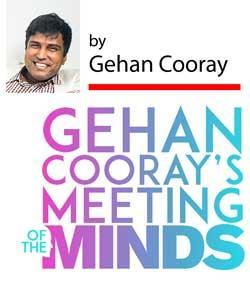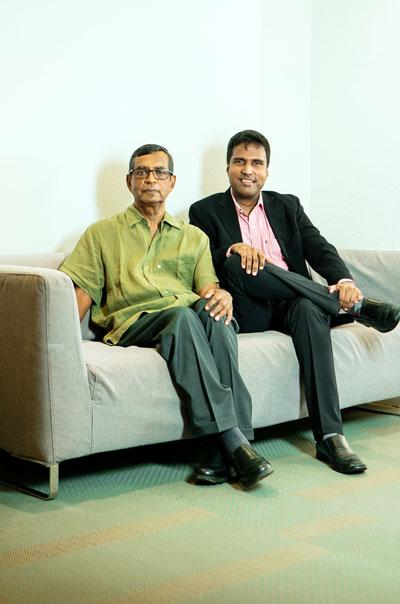27 Feb 2021 - {{hitsCtrl.values.hits}}

 Most people know me as a Los Angeles based Actor, Classical Baritone singer, and an Independent Filmmaker, and yet, many people are probably unaware of the fact that I almost had a parallel career as a Psychologist at one point in time. I read for Bachelor of Arts degrees in both Drama and Psychology at the University of Southern California, and was accepted into a Masters program in Psychology, following my graduation back in 2009, at the age of 21. In fact, I showed such an aptitude for Psychology, that some of my USC professors encouraged me to pursue a Ph.D, so that I might become a Licensed Clinical Psychologist. Hollywood actor Christian Bale's sister Louis Bale worked at USC, and being a psychotherapist herself, reassured me that it was possible for me to work in both the entertainment industry as well as in the field of Psychology. What ultimately prevented me from proceeding down that path was how difficult it was to walk away from the people I was assigned to help, once my assignment was up.
Most people know me as a Los Angeles based Actor, Classical Baritone singer, and an Independent Filmmaker, and yet, many people are probably unaware of the fact that I almost had a parallel career as a Psychologist at one point in time. I read for Bachelor of Arts degrees in both Drama and Psychology at the University of Southern California, and was accepted into a Masters program in Psychology, following my graduation back in 2009, at the age of 21. In fact, I showed such an aptitude for Psychology, that some of my USC professors encouraged me to pursue a Ph.D, so that I might become a Licensed Clinical Psychologist. Hollywood actor Christian Bale's sister Louis Bale worked at USC, and being a psychotherapist herself, reassured me that it was possible for me to work in both the entertainment industry as well as in the field of Psychology. What ultimately prevented me from proceeding down that path was how difficult it was to walk away from the people I was assigned to help, once my assignment was up.
I counselled battered women and their children at a Family Crisis Center in Downtown Los Angeles, and I came to know them so well over a period of multiple months, that it felt like they were my own family by the time I finished my last session with them - the Clinical psychologist who supervised me noted that I went through a full-fledged "grieving period", in fact, and this is when I realized that I would not be able to continue as a
 Psychologist/Psychotherapist. Thank Goodness there are hundreds if not thousands of mental health professionals who have learned how to strike that delicate balance between being empathetic towards their patients on the one hand, while maintaining the required clinical neutrality on the other hand - one such esteemed individual is Sri Lanka's very own Prof. Nalaka Mendis, who is already a legendary psychiatrist in the country. It is my privilege to have him on my new talk show, GEHAN COORAY'S MEETING OF THE MINDS, where I talk to distinguished personalities with whom I share a personal kinship. I feel like Sri Lankans sometimes take for granted the wealth and breadth of knowledge that resides in the minds of her people.
Psychologist/Psychotherapist. Thank Goodness there are hundreds if not thousands of mental health professionals who have learned how to strike that delicate balance between being empathetic towards their patients on the one hand, while maintaining the required clinical neutrality on the other hand - one such esteemed individual is Sri Lanka's very own Prof. Nalaka Mendis, who is already a legendary psychiatrist in the country. It is my privilege to have him on my new talk show, GEHAN COORAY'S MEETING OF THE MINDS, where I talk to distinguished personalities with whom I share a personal kinship. I feel like Sri Lankans sometimes take for granted the wealth and breadth of knowledge that resides in the minds of her people.
First of all, I should clarify the distinction between a Psychologist and a Psychiatrist for the benefit of our readers. A Psychiatrist is a medical doctor, first and foremost, who has specialized in the Science of the Brain, to put it in layman's terms. Psychiatrists have a much more complex understanding of the chemical processes of the brain, and the neurological causes behind certain thought patterns and even behaviors etc. A Psychologist by contrast is not a medical doctor, and is rather an academic or a specialist who has studied the Mind and Human Behavior on a more practical level, for lack of a better word. Psychologists cannot prescribe medication to their clients, the way Psychiatrists can. However, both Psychiatrists and Clinical Psychologists can administer "therapy" to people, although their methods of analysis and diagnosis might be a little different from one another.
Putting it another way, a Psychiatrist has studied the inner, neurochemical workings of the brain in depth, whereas a Psychologist deals primarily with the cognitive and behavioral MANIFESTATIONS thereof - the things which are more evident and observable in people's day to day lives. Of course, with certain people, the root of their mental and interpersonal issues is purely or at least primarily physical, or MEDICAL in nature, which is where a Psychiatrist needs to step in.
Prof. Nalaka Mendis is the furthest thing from a cold, detached scientist, however. In fact, his EMPATHY for people and their plights was so overwhelming during our discussion on the show, that I couldn't help but mention at one point that there was something almost SPIRITUALLY NOBLE about his approach to helping people. It would be no exaggeration to say that he treats Psychiatry not as a profession, but as a VOCATION. The principles he highlighted as being optimal for Mental Health and Psychological well-being are in fact much the same principles that have been highlighted by both Eastern and Western spiritual and religious traditions for many millenia. Prof. Mendis has a particular penchant for what is known as 'Positive Psychology' and the affirmation of positive things that can ameliorate and enhance a person's life, no matter how severe a history of mental illness they might have had, versus the archaic approach of always only emphasizing NEGATIVE and DEBILITATING things about a person's condition. We have come a long way from the "asylums" and such of old, after all. We also talked about the de-stigmatization of mental health challenges in the modern world, and the fact that there ought to be no shame whatsoever in seeking help when it's needed.
After all, Prof. Mendis believes that Mental Health is the very foundation upon which a person's entire life is built. He talked about how one's success and very happiness depend on the quality of one's psychological well-being. I agree with him one hundred percent on this, having observed firsthand how some people even allow their physical health to slip right through their fingers, on account of not having addressed the psychological and emotional issues that plague their personal lives, and also infiltrate their professional lives, no matter how much they may try to live in "denial". On the other side of the spectrum, those who do not live in such denial might eventually go to the extreme of taking their own lives; suicide is a subject that is very close to my own heart, because my former stepfather took his life last year, and Prof. Mendis elaborated on the type of "extreme logic" that governs a suicidal person's thinking. Thus, no matter what side of the spectrum a person might be on, establishing and maintaining Mental Health Equilibrium is absolutely crucial.
We also delved into the subject of fundamental and inalienable HUMAN RIGHTS, which constitute the core pillars of Mental Health in any given society. Prof. Mendis and I agreed that to take away a person's human rights, based on their gender, race, sexual orientation, religion etc, is to recede from Civilization and regress into a very primitive and animalistic state. Sadly, many nations in the world today are in various stages of such regression, no matter how advanced they might fancy themselves to be in terms of keeping up with the latest digital technologies and such. Nothing can ever substitute for HUMANITY, which clearly struck me as the guiding light in Prof. Nalaka Mendis's life. His humanity and empathy are the qualities which allow him to take his scientific and medical knowledge into that almost spiritual sphere I referred to earlier.
In addition to such all-encompassing issues, I also asked Prof. Mendis to talk about specific chemicals in the brain like Serotonin, which can make or break the sense of happiness and positivity a person feels in their daily life, whether at home or at work. The more people become aware of things like this, the more they will be equipped to live the best versions of their lives. For all this, and so much more on the topic of Mental Health, please do tune into the second episode of GEHAN COORAY'S MEETING OF THE MINDS today, brought to you by Daily Mirror Online, in partnership with Jetwing Colombo Seven, which is where I converse with all my talk show guests. So grab a cup of soothing, herbal tea, sit on your most comfortable couch, and listen to Prof. Nalaka Mendis and I talk at length about subjects that affect and unite all of us, no matter where in the world we might be.
09 Jan 2025 21 minute ago
09 Jan 2025 46 minute ago
09 Jan 2025 2 hours ago
09 Jan 2025 2 hours ago
09 Jan 2025 2 hours ago